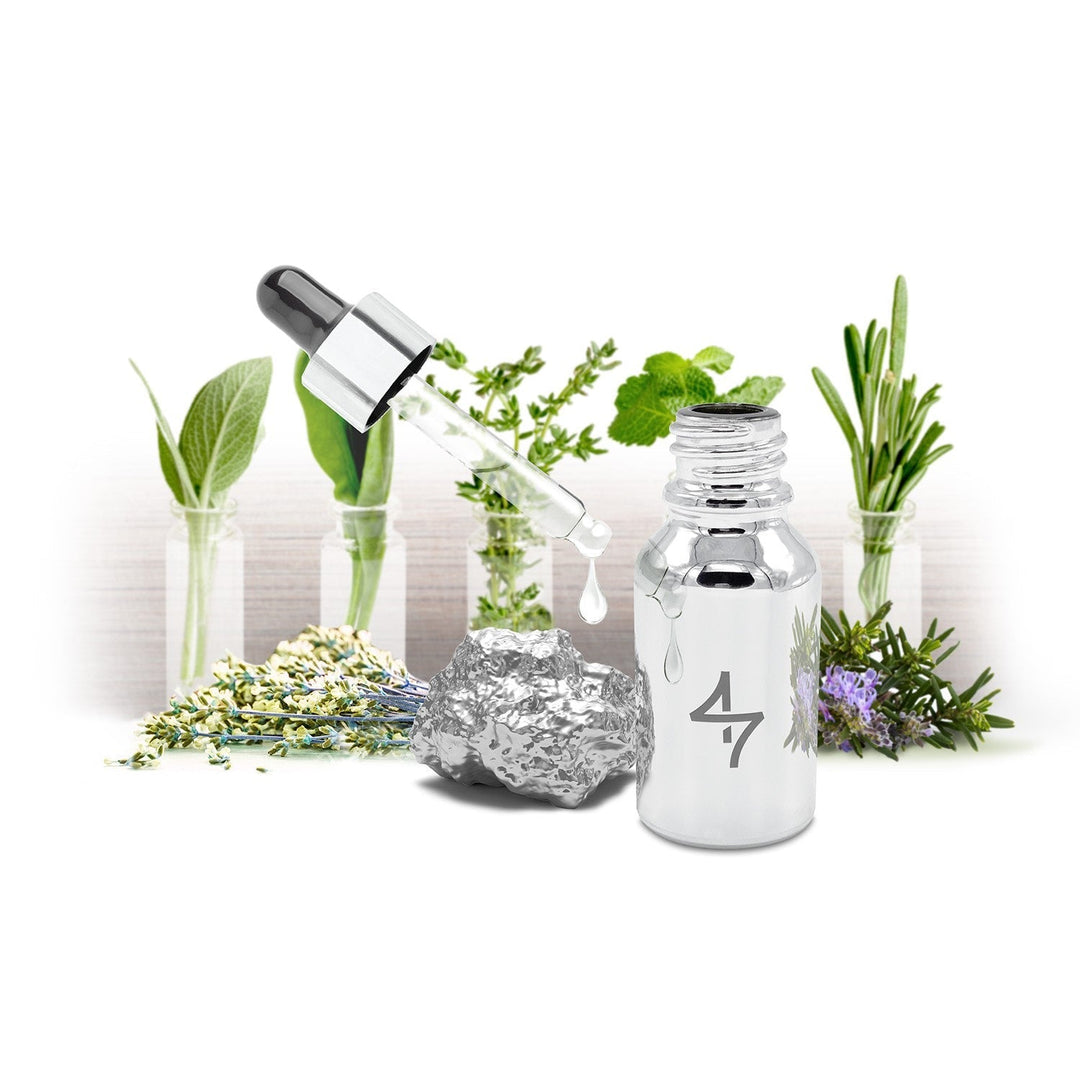If you’re feeling bogged down, and are coping with a little more stress and anxiety than unusual, you’re not alone. According to a recent report released by the Center for Disease Control and Prevention (CDC), the reports of elevated mental health conditions among adults significantly increased in late June.
This increase included several manifestations, but anxiety disorder and depressive disorder symptoms topped the chart as the top complaints made by survey respondents.
There are many ways we can deal with stress, and it’s often wise to discuss those avenues with a medical, healthcare or wellness practitioner; even small changes at home can often make a difference. If you’re wondering how to relieve stress naturally, you’ve come to the right place.
Here are 10 proven ways to help cope with stress.
1. Eat Well
Aside from making it harder to stay focused, get through the day, and get a good night’s sleep, stress can lead to damage to the body and cause or exacerbate existing health problems. The most prominent include decreased immunity, heart disease, depression, anxiety, and obesity, just to name a few.
Refined sugars and carbs and high-calorie junk food may be what your mind craves after a stress-filled day, but it’s not what your body needs. Replacing those foods with healthier, whole-food alternatives packed with the right vitamins and minerals can help you naturally reduce stress and generally feel better.
To cultivate a stress-relieving diet, opt for nuts, fresh fruits, and veggies (especially leafy greens like spinach), fishes high in omega-3s, and complex carbs like oatmeal. If you have a nagging sweet tooth, consider opting for dark chocolate or a cup of herbal tea sweetened with honey.

2. Stay Hydrated
Whatever ails you, you’ll likely find some bit of advice that recommends drinking plenty of water. Stress is no different. Even being mildly dehydrated can lead to moodiness, fatigue, and a general decline in cognitive performance.
It can also lead to an increase in cortisol, the stress hormone. And all those things can increase that dreaded feeling of stress, creating a never-ending cycle. Fortunately, you can break the cycle by drinking enough fluid, particularly water, each day. Typically, the recommended eight 8-ounce glasses is a good goal.
3. Exercise
We know; you’ve heard this one from many experts for days on end. It is worth repeating, however, because it is so true. Much like staying hydrated, exercise is another practice that carries numerous benefits for the mind and body, and that includes stress relief.
Hitting the gym or engaging in a heavy workout session is excellent, but you don’t need to be dripping in sweat and physically exhausted to benefit. Even a simple thirty-minute walk can help your mind relax and your stress drift away. In addition, getting up out of a chair, stretching and not remaining sedentary all day is highly recommended.
4. Get Grounded
Grounding, also referred to as Earthing, isn’t a new concept, and you will likely see it mentioned more and more. That’s because grounding can help us deal with the emotional imbalances that occur in our chaotic and often unpredictable world. Like meditation, grounding is a way to redirect our minds and bodies by relying on our five senses to connect to the moment.
There are many ways you can practice in your own life, and the good news is that many of them are inexpensive and straightforward (and most are free). Guided and controlled breathing, listening to the beat and vibrations of your favorite song, and enjoying the focusing on the sights, smells, sounds and even the feel of the great outdoors are great ways to get grounded.
Get your barefoot tootsies on the ground, take a bath with running water, knew on the earth in a garden; and if you are lucky enough to be near water, walk on the beach or lakeside. An easy read is Barefoot Wisdom, Better Heath through Grounding, as well as The Earth Prescriptions.
5. Write It Down
When people hear “write it down”, they often think of journaling. And rightfully so. Journaling can help manage stress making it easier to identify, “talk” through, and create solutions to issues, all within a safe space.
Not into journaling? Writing things down can still help, especially making lists. Lists can prioritize and organize things that may seem hard to handle or approach in your life. And, since lists often lead to logical steps, they can help you create plans and make informed decisions on how to proceed, whether it’s managing a busy week or making a big decision.
6. Get Creative
Much like journaling, engaging in a hand-on, arts and craft hobby can give your mind an outlet and allow you to get lost in your work and away from the world around you, even if just for a little while. It can also help you work through some of your feelings without having to commit them to words.
Painting, coloring, word work, knitting, drawing, etc. are great ways to get in touch with your creative side, but you don’t have to be an artist to benefit from creative activities. Adult coloring books are still largely popular and easy to find, and studies have shown a positive relationship between coloring and reduced anxiety.
7. Stay Organized
We’ve all been there: the week starts and ends with chaos, the house is messy, the workspace disorganized, the bed unmade, and laundry piling up. Then the next day or week comes and it’s even harder to catch up, which makes each day more stressful than the last.
Clutter and disorganization, whether it’s at work or in your home, can increase stress. Restoring order can help reduce stress by giving you a more organized place to live and work. In some cases, something as simple as making your bed can even help you get a better night's sleep, another key to reducing stress. Plus, the act of cleaning itself can also double as a stress-relieving activity.
 8. Connect with Friends and Family
8. Connect with Friends and Family
Right now, many of us are suffering from decreased social interactions, and even that can also lead to increased stress, or at least deprive us of a much-needed outlet for relieving it. If you’re feeling particularly stressed, ask yourself when you last had a meaningful interaction with someone you love and trust. If it’s been quite some time - or even if it hasn’t - it may be time to take action.
It’s not always easy to meet face-to-face, but that doesn’t mean it’s impossible to benefit from social connections. Phone calls, emails, video chats, or even a good old-fashioned hand-written letter can help you feel connected even if you’re miles apart.
9. Get a Good Night’s Sleep
When it comes to your health, sleeping is right up there with staying hydrated and regularly exercising. Stress during the day can make it harder to sleep, perpetuating a cycle of inadequate sleep and increased stress. But there are things you can do to make it more likely you’ll get that full 7 - 9 hours of sleep your body needs.
Avoiding stimulants like caffeine and computer screens before bed can help you drift off to a peaceful night of sleep. And according to the American Institute of Stress (AIS), increased exposure to daylight, exercise, and yoga can improve sleep quality and quantity.
10. Aromatherapy
Aromatherapy isn’t new, and thanks to a growing body of proponents, access to essential oils and other aromatic products has increased. This increase may be, in part, because of the way your body and mind process scents.
According to the Cleveland Clinic, “scents released by the [essential oil] act on the hypothalamus, part of the brain that influences the hormonal system.” This can lead to improved moods and, as you guessed, decreased stress and anxiety, depending on the oils used.
That’s one of the reasons we love our TRU47 inhalers. These easy to use inhalers offer users a proprietary blend of colloidal silver and 100% pure organic essential oils, like Lavender (Stress Less) and Roman Chamomile ( Sleep Tight), both of which can improve mood and reduce stress.
A little bit of stress may be common, but non-stop or increased amounts of stress can have genuinely negative effects on your mind and body. By utilizing one or more of the tips above, you may very well find that, in time, your stress and anxiety are reduced and you’re better able to take on each day with energy, focus, and a smile.





